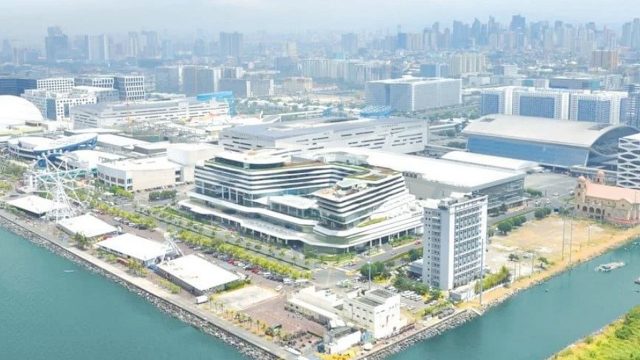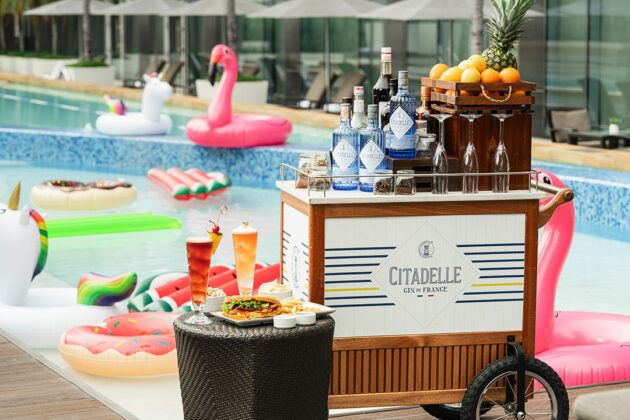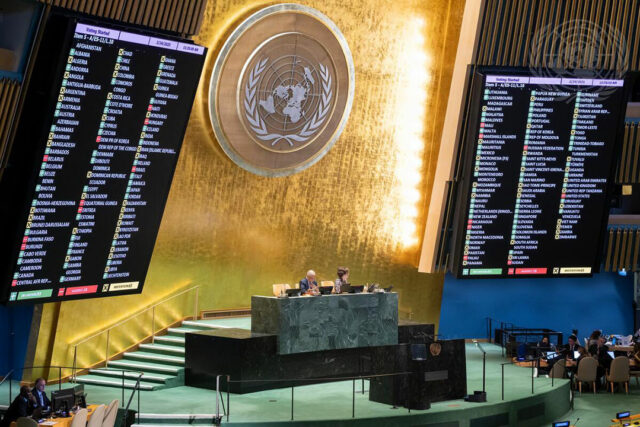By Zsarlene B. Chua
LOCATED in a nondescript part of Mandaluyong, at the corner of Calbayog and L. Esteban streets, a fermentation lab-cum-contemporary canteen is trying to “spearhead a fermentation movement in Metro Manila” by offering tried-and-true classics elevated through fermentation.
Now Now Canteen, founded by husband-and-wife team Bryan and Maxine Kong, started as an idea to develop a fermented ice cream.
“We ate at Noma for our honeymoon and were so blown away with how they prepared [their dishes] and that they’re heavily focused on fermentation,” Mr. Kong told BusinessWorld at the sidelines of a beauty event on Feb. 21. Once back in the Philippines, Mr. Kong was so inspired that he decided to grow his own koji (a fermentation starter that uses rice or soybean) and create a fermented sweet potato ice cream for Kurimu, his Japanese-style premium handcrafted ice cream venture.
This experiment didn’t exactly work out, so he decided to put koji in dishes like tinola (Filipino chicken soup with ginger) and sinigang (Filipino sour soup that uses a variety of possible souring agents like tamarind or guava) with better results.
Koji (Aspergillus oryzae) is a fungus used in East Asian fermentation, which is the key to making soy sauce, miso, and sake. Used in East Asia for thousands of years, it has been a cornerstone of traditional fermentation practices as it breaks down starches and proteins to enhance umami (savoriness) and deepen flavors.
Mr. Kong and his wife were so enamored by koji and the potential of fermentation in bringing out the umami of dishes that it grew into what is now Now Now Canteen.
Opened in September 2024, Now Now has gained a cult following for its unique menu, which incorporates fermented ingredients. The restaurant’s nondescript exterior matches its industrial, lab-like interior, complete with metal décor, a steel shelf displaying creations, and a temperature-controlled fermentation lab.
“You won’t find a restaurant like this in our area,” Mr. Kong said. But beyond their dishes, part of their ethos, he said, is to “democratize fine dining culinary techniques and make it accessible to the neighborhood.”
Now Now offers two service times: brunch and dinner and while reservations are encouraged, walk-ins are welcome. The entire menu is also a la carte and items are reasonably priced beginning at P350.
While this writer wasn’t able to experience too much of the menu during the event, a few of the standouts were the Tortang Talong Okonomiyaki, a spin on the popular eggplant omelet and includes bacon, crispy fried noodles, crispy nori sheets, all dressed in wild garlic mayo. We were also served a sort of fermented red sauce, reminiscent of ketchup which imparted a tang that cuts through the savoriness, so you don’t get tired of the flavors. It was an all-in-all full-on umami bomb, creating a perfectly balanced bite — rich, textured, and satisfying.
Then there’s the Shakshouka which uses fermented eggplants and onions, labneh (Middle Eastern cheese created from strained yogurt), poached eggs, chicken skin, and served with Polish flatbread. The dish was an instant hit at our table due to the rich fermented eggplant balancing the creamy labneh and runny eggs. It would benefit from more than a hint of spice to further wake up the flavors, but it was a very good dish.
The menu is developed by executive chef Mateusz Łuczaj and executive pastry chef Lisane Łuczaj who fly in from Poland to work with the Now Now team to develop new dishes. Mr. Kong said that the plan is to create a revolving menu with the target of three menu changes a year.
FERMENTATION, EXPERIMENTATION, AND SUSTAINABILITY
Beyond accessibility and spreading the gospel of fermentation in the metro, Now Now’s mission is also to champion sustainability and local produce. Mr. Kong said that currently, the restaurant is “97% waste-free” as almost all of the trimmings from the produce are fermented as the “kitchen is really intentional with our food waste.”
He added that they are currently in talks with local farmers about getting their trimmings and waste products so they can create something new out of it. “We’ll make a sauce out of [their] waste,” he said.
With fermentation being a hobby of his, Mr. Kong is also trying out different ferments using local produce like a batuan cheong. Batuan is a sour fruit, a relative to mangosteen, that is often used as a souring agent for the Visayan sour soup, kansi, and sinigang. Meanwhile, cheong is the Korean process of making fruit syrups by using a 1:1 ratio of fruit and sugar. Together, batuan cheong is a syrup whose aroma reminds us of a sweet-sour dessert wine. In a few more weeks (or even months), this batuan cheong will eventually end up in a ceviche, an application Mr. Kong endorses as the syrup imparts complex sweet-sour notes that go well with fish.
Now Now Canteen, with its bold approach to fermentation and sustainability, is a culinary experiment in progress. A testament to the ever-evolving food culture in the country. And with The Michelin Guide arriving in the Philippines, Mr. Kong said that this presents an opportunity for the country’s culinary industry to take the spotlight on the world stage.
“[Due to] the Filipino diaspora, Filipinos are everywhere. So we actually have the power to influence the world culinary scene,” he said.
Now Now Canteen is located at 497-C Rosa Bldg., Calbayog corner Esteban St., Mandaluyong City.
Zsarlene Chua is a former BusinessWorld reporter who is now a fledgling PR girl. She’s all about skincare, makeup, and video games — and occasionally food. None of the products she reviews are the writer’s clients. Contact the author at zsarlene.chua@gmail.com.


















